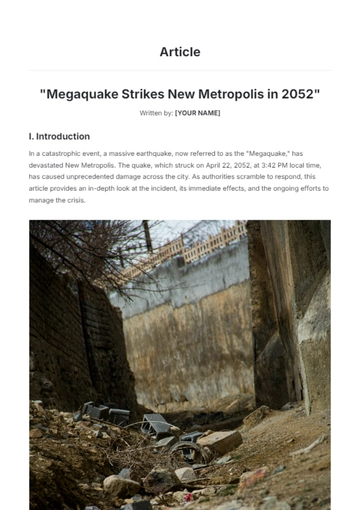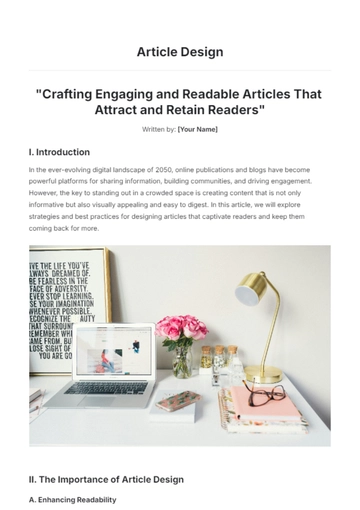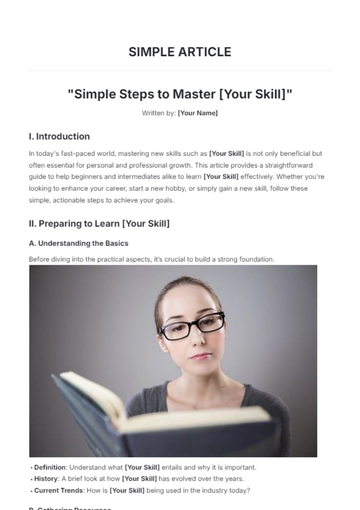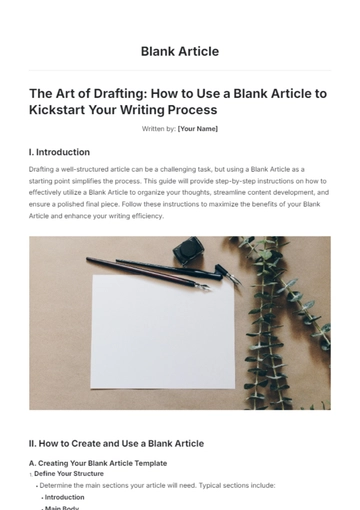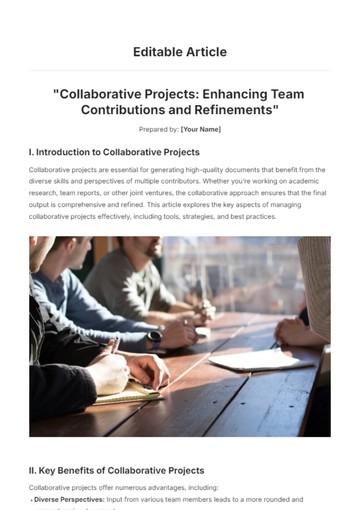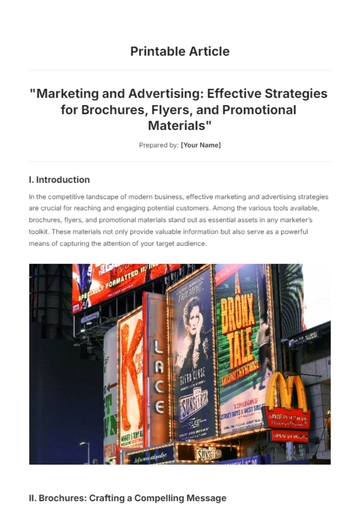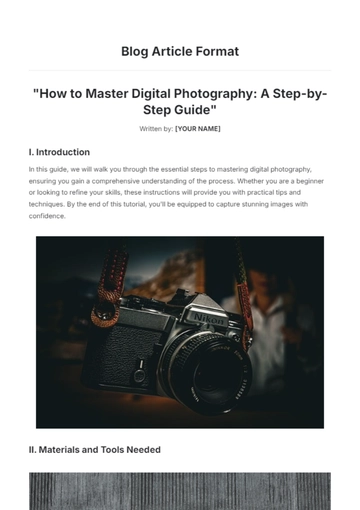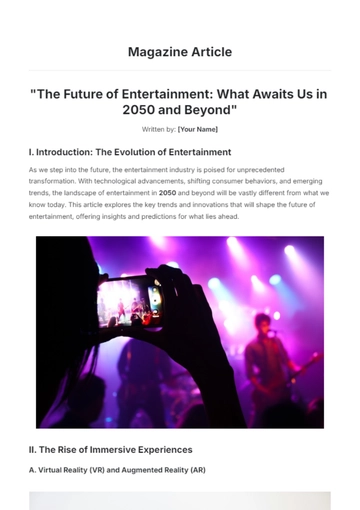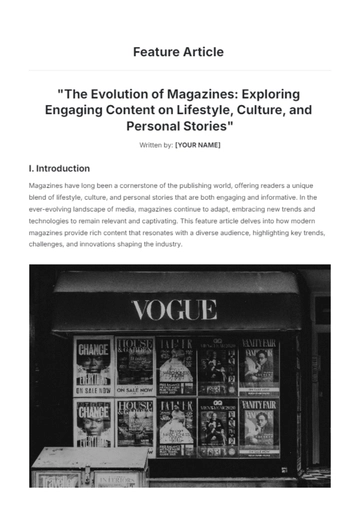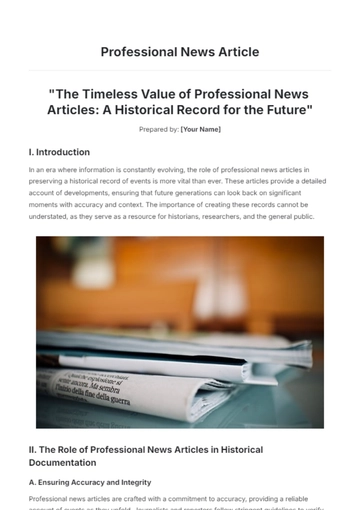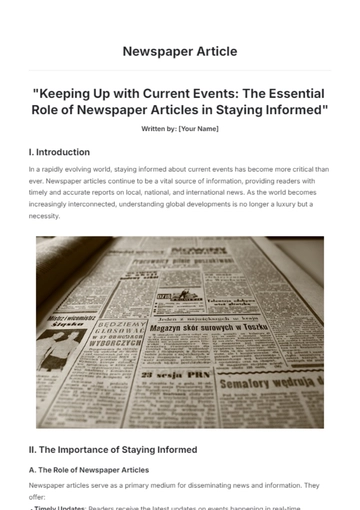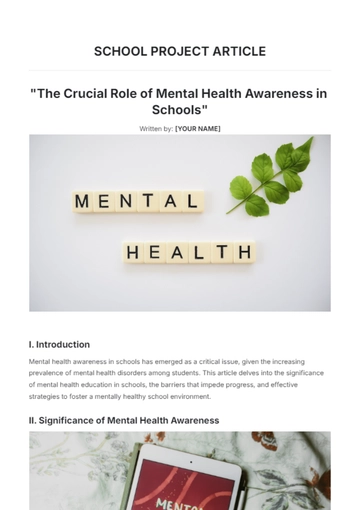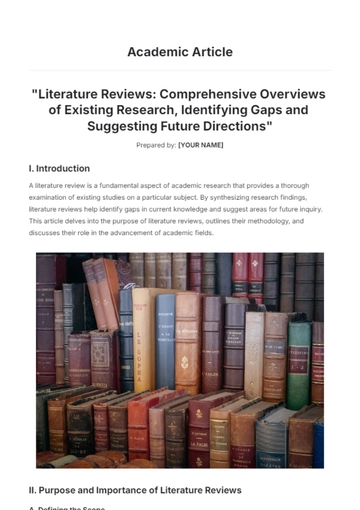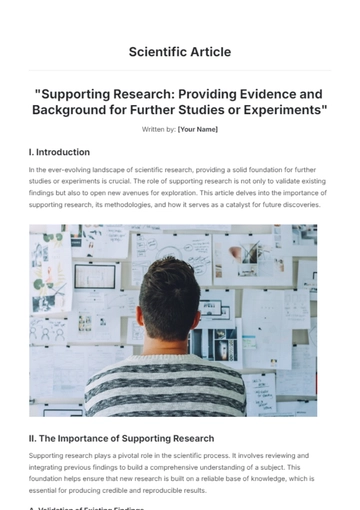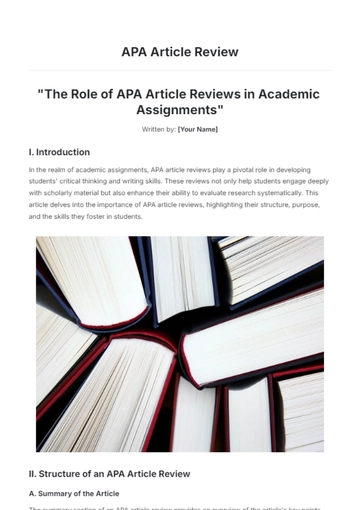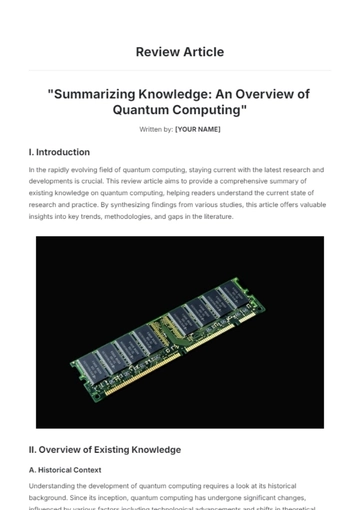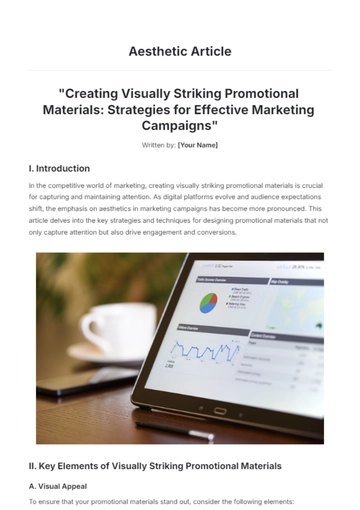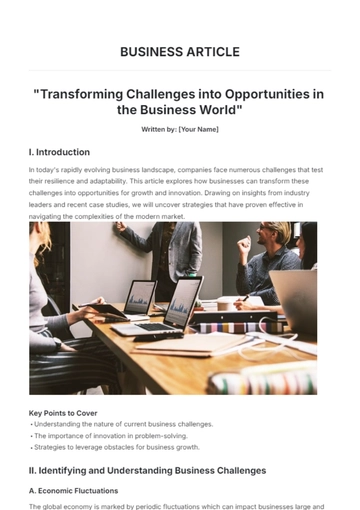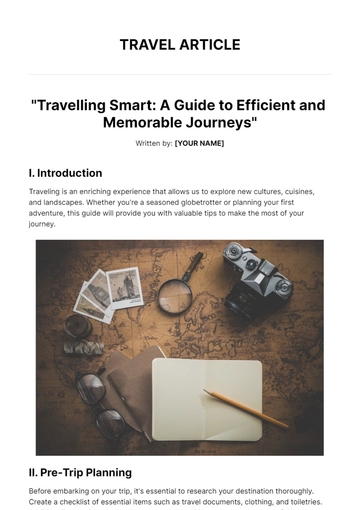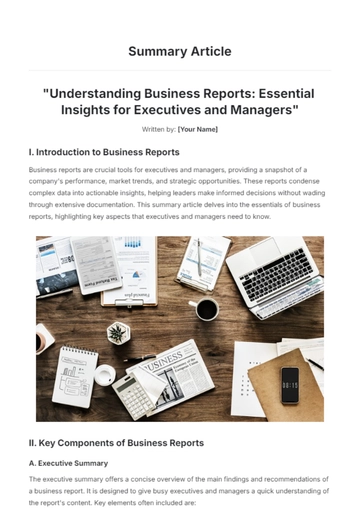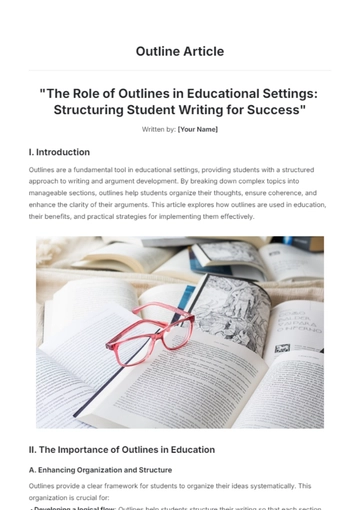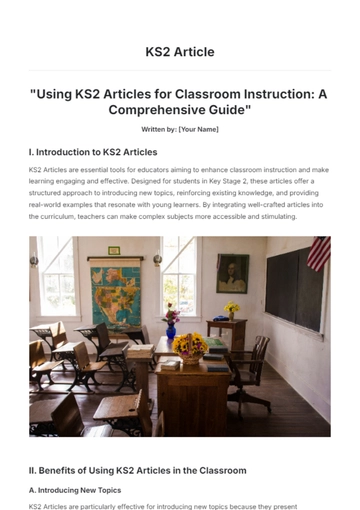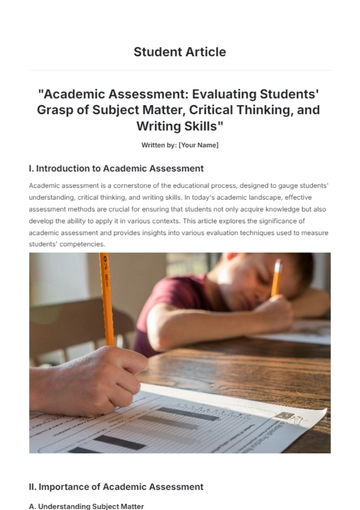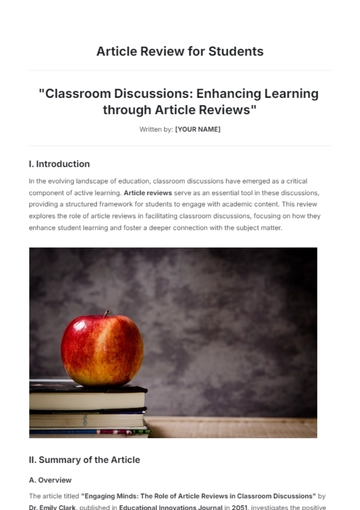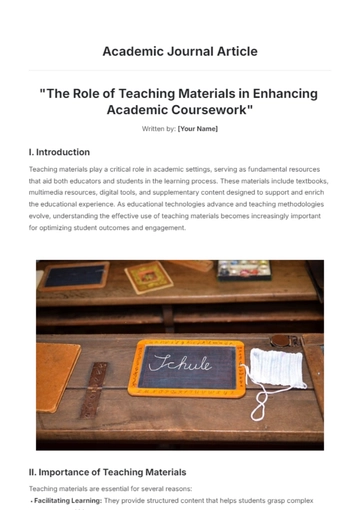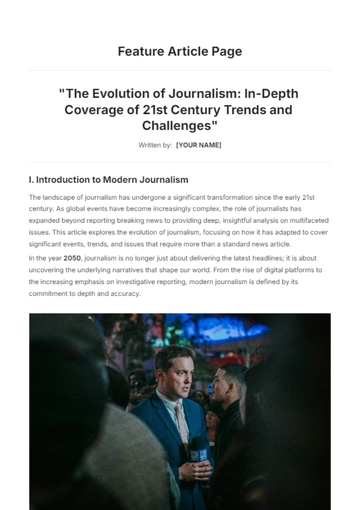Free Student Article
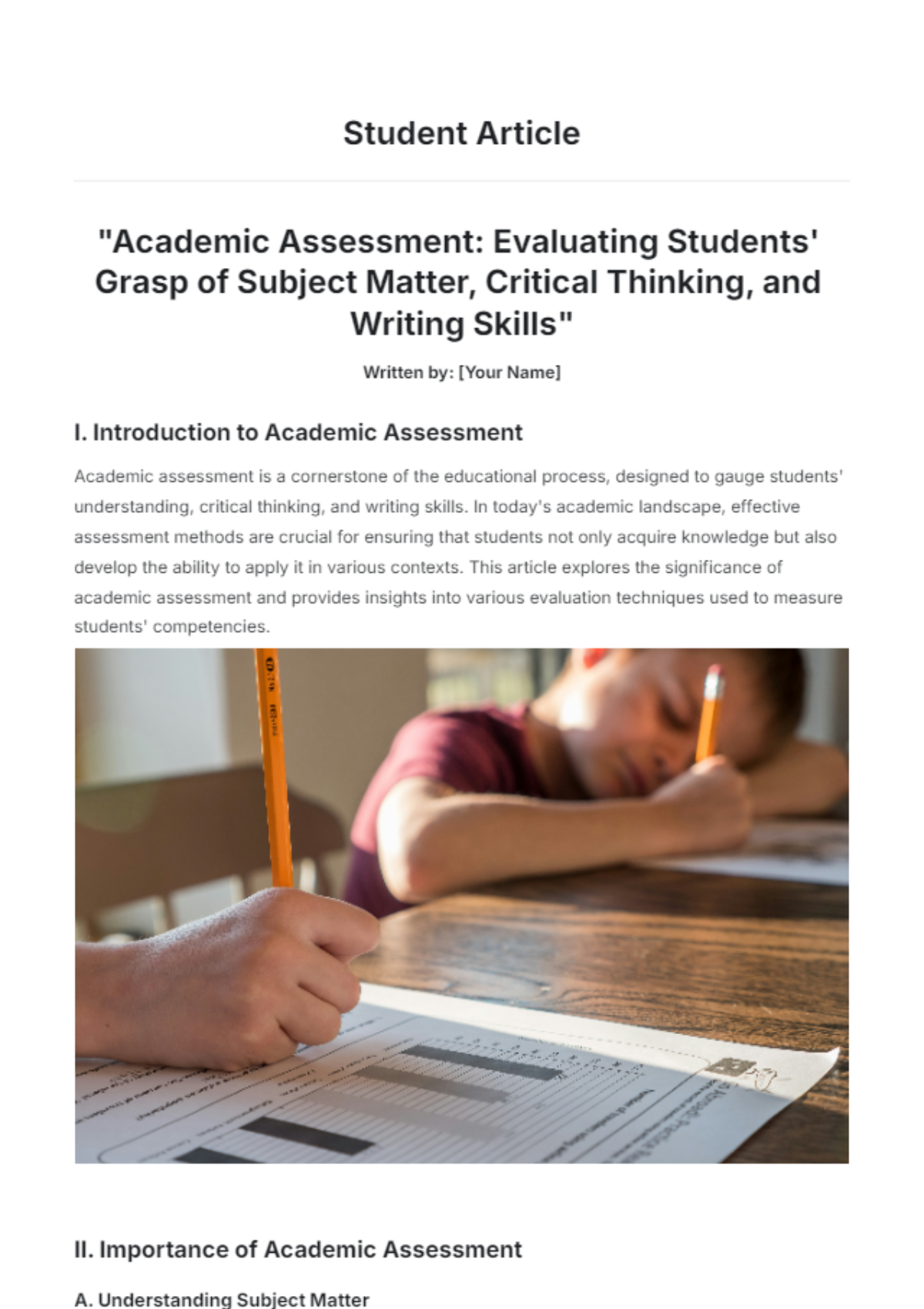
"Academic Assessment: Evaluating Students' Grasp of Subject Matter, Critical Thinking, and Writing Skills"
Written by: [Your Name]
I. Introduction to Academic Assessment
Academic assessment is a cornerstone of the educational process, designed to gauge students' understanding, critical thinking, and writing skills. In today's academic landscape, effective assessment methods are crucial for ensuring that students not only acquire knowledge but also develop the ability to apply it in various contexts. This article explores the significance of academic assessment and provides insights into various evaluation techniques used to measure students' competencies.

II. Importance of Academic Assessment
A. Understanding Subject Matter
Academic assessment helps educators evaluate how well students comprehend the material presented in their coursework. It provides insight into whether students can grasp fundamental concepts and apply them effectively. Here are some common methods used for assessing subject matter understanding:
Quizzes and Exams: Testing knowledge through multiple-choice, short answer, and essay questions.
Assignments and Projects: Evaluating students' ability to apply concepts in practical scenarios.
Class Participation: Assessing engagement and understanding through discussions and interactive activities.
B. Enhancing Critical Thinking
Critical thinking is a vital skill that academic assessments aim to develop and evaluate. It involves analyzing information, making reasoned judgments, and solving problems. Key strategies for assessing critical thinking include:
Case Studies: Analyzing real-world scenarios to apply theoretical knowledge and make informed decisions.
Debates and Discussions: Encouraging students to articulate and defend their viewpoints on various topics.
Research Papers: Evaluating the ability to conduct research, synthesize information, and present well-reasoned arguments.
C. Evaluating Writing Skills

Effective writing is essential for academic success and professional communication. Assessing writing skills involves examining clarity, coherence, and structure. Common evaluation criteria include:
Grammar and Syntax: Checking for correctness and adherence to language rules.
Organization and Structure: Evaluating the logical flow and presentation of ideas.
Argumentation and Evidence: Assessing the strength of arguments and the use of supporting evidence.
III. Assessment Techniques and Tools
A. Traditional Assessment Methods
Traditional assessment methods remain widely used due to their effectiveness in measuring specific skills. These include:
Standardized Tests: Providing a benchmark for comparing student performance across different institutions.
Essays and Term Papers: Offering a detailed assessment of students' writing and analytical abilities.
B. Innovative Assessment Approaches
With advancements in education, innovative assessment approaches are gaining popularity. These include:
Project-Based Learning: Allowing students to demonstrate their knowledge through practical projects.
Digital Portfolios: Enabling students to showcase their work and progress over time.
Peer Assessment: Encouraging students to evaluate and provide feedback on each other's work.
C. Utilizing Technology in Assessment
Technology plays a significant role in modern assessment practices. Tools such as:
Online Quizzes and Exams: Offering convenience and immediate feedback.
Assessment Software: Providing analytics and tracking student performance.
Collaborative Platforms: Facilitating group projects and peer reviews.
IV. Conclusion
Academic assessment is a multifaceted process essential for evaluating students' grasp of subject matter, critical thinking, and writing skills. By employing a combination of traditional and innovative assessment methods, educators can gain a comprehensive understanding of student capabilities and foster an environment conducive to learning and growth. As educational practices evolve, staying informed about effective assessment strategies will continue to play a crucial role in shaping successful academic outcomes.
- 100% Customizable, free editor
- Access 1 Million+ Templates, photo’s & graphics
- Download or share as a template
- Click and replace photos, graphics, text, backgrounds
- Resize, crop, AI write & more
- Access advanced editor
Elevate your academic writing with the Student Article Template from Template.net. This versatile, editable tool offers seamless customization, allowing you to craft personalized articles with ease. With its AI Editable Tool integration, you can effortlessly adjust content to meet your needs. Perfect for students aiming for precision and professionalism in every submission.
